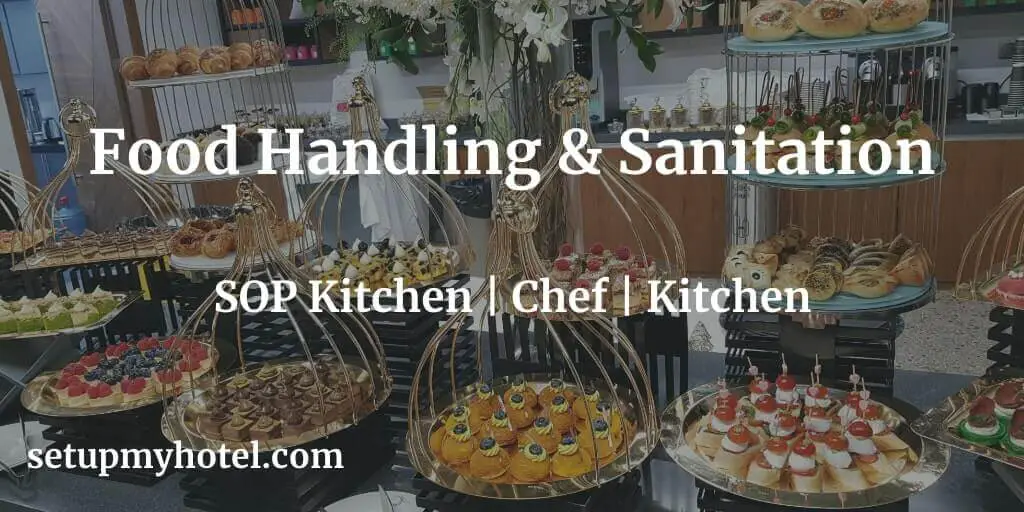Standard Food Handling and Sanitation in the Hotel Kitchen
While doing food handling & preparation, chefs have to be free from all kinds of bacterial infections. The kitchen staff should pay attention to these two critical points; 1) Cross ContaminationContamination - The transfer of bacteria from one food to another.: the transfer of bacteria from another food, equipment, or work surface. and 2) Food Danger ZoneDanger Zone - 45� F to 140� F or 7� Celsius to 60� F is the range of temperature in which th...: the temperature for the food work area should be maintained in-between 45-140º F since at this range most bacteria cannot grow.
The Executive Chef and the Sous Chef should be responsible for ensuring that proper food handling and sanitation practices are followed by the kitchen staff. The hotel training and HRD department should develop and implement proper written Kitchen SOP’s to ensure the same is implemented correctly throughout all the food preparation outlets.
Food Handling and Sanitation Standard Procedures:
- Ensure the cleanliness of wholesome foods and make sure to only buy from reputable purveyors.
- Whenever applicable, buy only government-approved or certified meats, poultry, fish, dairy, and egg products.
- Handle food directly with as little contact as possible: make use of tongs, spatulas, or other utensils instead of hand whenever possible.
- Use clean sanitized cutting equipment and work tables.
- Clean and sanitize cutting surfaces & equipment after handling raw, poultry, meats, fish, or eggs before working on another food.
- Follow the ‘Clean as you go‘ method ie do not wait until the end of the work day.
- Always wash raw fruits and vegetables thoroughly before processing.
- When bringing food out of the refrigerator, do not bring out more than you can process in an hour.
- Keep food covered whenever possible unless it is used immediately.
- Do not let any perishable foods remain in the temperature danger zone for more than one hour.
- BoilBoil - To cook the food item in a boiling liquid. Very few items are boiled due to the fact that whi... leftover gravies, sauces, soup, and vegetables before serving.
- Don’t mix leftovers with freshly prepared food.
- ChillChill: To cool a mixture until its cold; but not frozen. all ingredients for protein salads & potato salad before combining.
- Chill custard, cream fillings, and other hazardous food as quickly as possible by pouring them into shallow, sanitized pans.
- Always cover the food items and put them into a refrigerator without any delay.
- Do not stack the pans when keeping them in the refrigerator.
- Cook all pork products to an internal temperature of at least 150º F (65º C).
Training Summary questions:
Q1. What is the purpose of this SOP?
Q2. Why it is important to buy wholesome foods and supplies from reputable suppliers only?
Q3. How to reduce direct contact with the prepared food?
Q4. What is the limit of foods that can be brought out for processing?
Q5. The kitchen staff should pay attention to two critical points, what are they, and explain each of them.
Patreon Only SOP Download
SOP Number: Kitchen / F&B Production SOP – 18 Department: Kitchen / Food Production - Food Handling and Sanitation Date Issued: 30-Nov-2018 Time to Train: 20 Minutes












